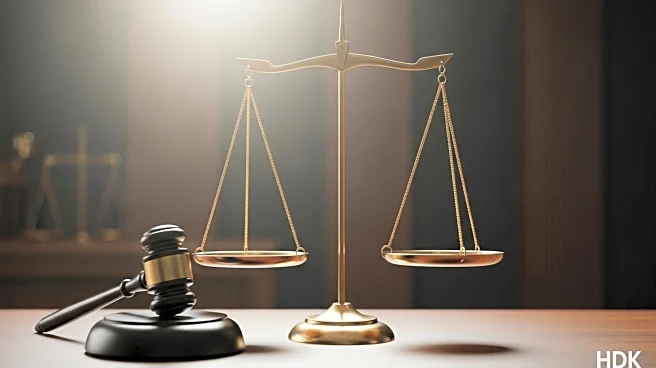What is the story about?
What's Happening?
Erika Kirk, the widow of Charlie Kirk, has announced that she will not pursue the death penalty for her husband's alleged killer, Tyler Robinson. Charlie Kirk was killed on September 10 by a gunman who reportedly harbored animosity towards him. Erika Kirk expressed her decision in an interview, stating that she wants the government to make the decision regarding the punishment. She emphasized her desire to avoid having the killer's blood on her conscience, citing religious beliefs about forgiveness and the afterlife. Charlie Kirk had been receiving death threats and was advised to wear a bulletproof vest, which he declined, trusting in his security team. Erika Kirk shared memories of her husband's excitement for his upcoming tour and his peaceful demeanor at the time of his death.
Why It's Important?
Erika Kirk's decision not to seek the death penalty highlights ongoing debates about capital punishment in the United States. Her stance may influence public opinion and discussions around the ethical implications of the death penalty, particularly in cases involving personal loss and religious beliefs. This decision also underscores the complexities faced by victims' families in navigating justice and forgiveness. The case may impact future legal proceedings and the broader conversation about how society addresses violent crime and its consequences.
What's Next?
The legal process will continue as the government decides on the appropriate punishment for Tyler Robinson. Erika Kirk's decision may prompt discussions among lawmakers and advocacy groups about the role of capital punishment in the justice system. Public reactions and potential policy debates could arise, focusing on the balance between justice and mercy. The case may also lead to increased security measures for public figures facing threats, as demonstrated by Charlie Kirk's experience.
Beyond the Headlines
Erika Kirk's choice reflects deeper ethical and religious considerations that can influence legal decisions. Her emphasis on forgiveness and the afterlife introduces a cultural dimension to the debate on capital punishment. This case may inspire broader discussions on how personal beliefs intersect with legal systems and societal norms. It also raises questions about the protection of public figures and the responsibilities of security teams in preventing violence.














